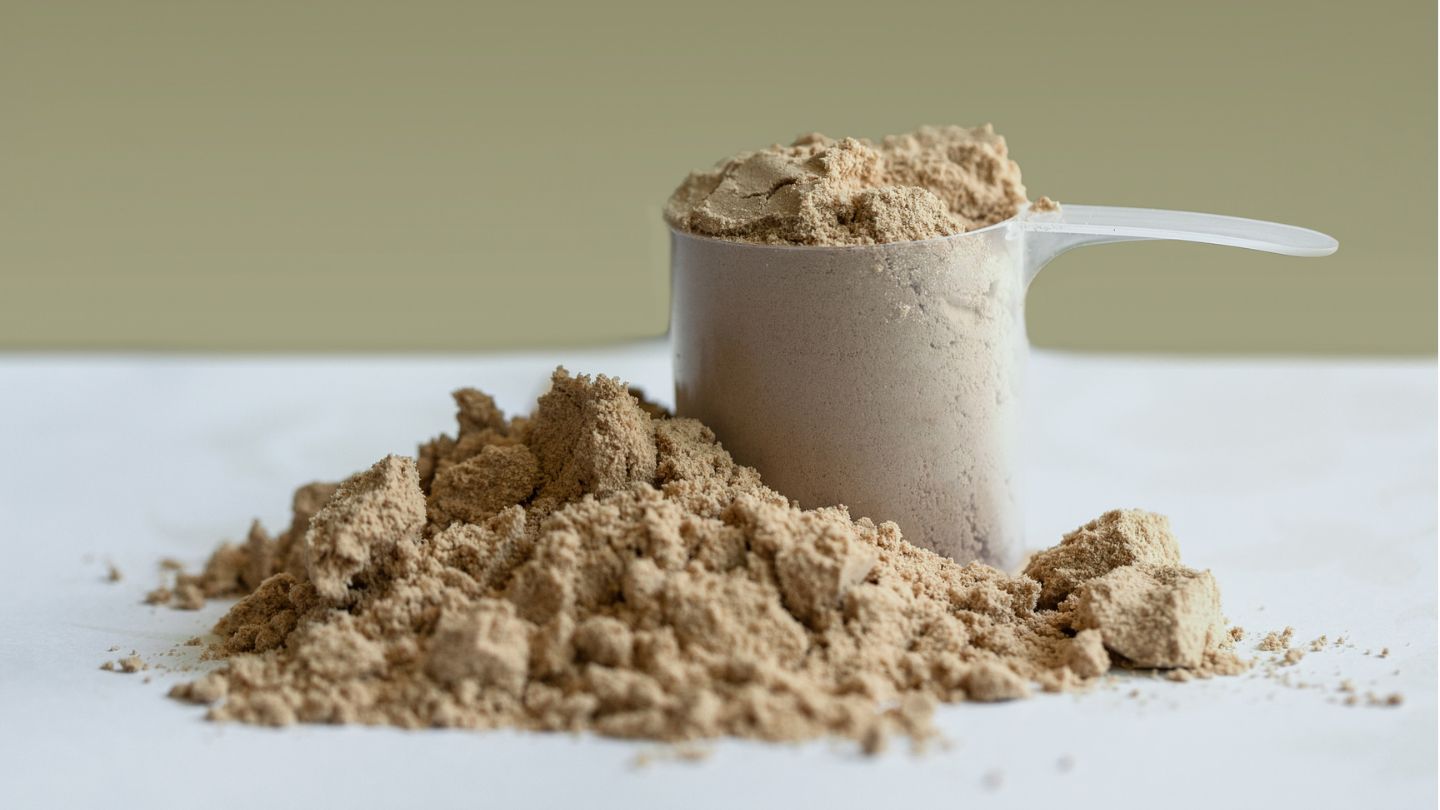
The Importance of Protein Intake After Gastric Sleeve Surgery
Understanding the importance of protein intake after gastric sleeve surgery is crucial for a successful recovery and sustained weight loss. Protein is essential to healing, maintaining muscle mass, and supporting overall health post-surgery. In this blog, we will explore why protein is vital, how much you need, and how to effectively incorporate it into your diet.
Key Takeaways
- Adequate protein intake of 70 to 100 grams daily is essential for recovery and muscle maintenance after gastric sleeve surgery.
- Incorporating both animal (e.g., meats, eggs) and plant-based (e.g., beans, quinoa) proteins into meals ensures comprehensive nutrient intake.
- Protein supplements may be necessary post-surgery to meet nutritional needs, particularly when solid food consumption is limited.
Why Protein is Crucial After Gastric Sleeve Surgery
The significance of protein intake following bariatric surgery is substantial. It plays a central role in tissue repair, immune function, and the preservation of lean muscle mass during the rapid weight-loss phase. In the post-surgical period, the body requires increased protein to support healing and maintain strength.
Consuming adequate protein helps protect muscle mass while the body adapts to reduced caloric intake. This is essential for maintaining an active metabolism and preventing fatigue or muscle weakness. Because nutrient absorption is altered after surgery, meals must be intentionally designed to deliver maximum nutritional value—starting with high-quality protein.
Medical professionals advise that every meal should include a protein source to ensure consistent delivery of essential amino acids. A nutritionist or bariatric dietitian can help structure your post-op meal plan to meet these needs safely and effectively. Prioritizing protein is key to achieving long-term success in weight management, muscle preservation, and improved energy levels.
Protein Requirements for Bariatric Surgery Patients
Understanding how much protein your body needs after gastric sleeve surgery is crucial to supporting recovery and maintaining long-term results. While daily needs vary by individual, most bariatric surgery patients are advised to consume between 60 and 100 grams of protein each day, depending on body size, activity level, and overall health status.
In addition to meeting general intake targets, your care team may calculate your specific protein requirement using your ideal body weight—typically around 1.2 grams per kilogram. This individualized approach ensures your body gets the fuel it needs for metabolic support, immune function, and muscle maintenance.
Working with a registered dietitian is highly recommended to accurately track your intake and adjust your meal plan as your tolerance for solid foods improves. Digital food journals or tracking apps can also support your progress by helping you stay consistent with your goals.
Daily Protein Goals
The first step to guaranteeing sufficient protein intake following bariatric surgery is to set daily protein objectives. Women should consume between 60 and 80 grams of protein each day, while men are advised to strive for a slightly higher intake of 70 to 90 grams per day.
To customize your protein consumption according to your individual needs, aim for approximately 1.2 grams of protein per kilogram of your ideal body weight. Adopting this tailored strategy ensures that the amount of protein you consume aligns with the specific demands of your body. Incorporating foods rich in proteins into your meal plan will assist in meeting these targets more effortlessly.
Monitoring Your Protein Intake
Monitoring protein consumption after bariatric surgery is a critical component of your recovery plan. Most patients should aim for at least 60–100 grams of protein per day, depending on their clinical recommendations and progress during follow-up visits.
If protein from whole foods falls short—especially in the early stages when portion sizes are small—your dietitian may recommend professionally approved supplements. These are specially formulated to meet the nutritional needs of bariatric patients without added sugars or fillers.
Tracking your intake with professional guidance ensures that your recovery stays on course and prevents nutrient deficiencies. Regular consultations with your healthcare team can help fine-tune your dietary plan and ensure that you’re progressing safely toward your health goals.
High Protein Foods to Include in Your Diet

Incorporating foods rich in protein into your diet plays a vital role in recuperation and the preservation of muscle mass after undergoing surgery. Eggs, various meats, fish, and poultry are particularly beneficial because they contain all the essential amino acids needed for bodily repair and well-being.
For individuals with specific dietary needs, plant-based sources of protein should not be overlooked. Legumes such as beans, as well as tofu and quinoa, offer valuable proteins that contribute to meeting nutritional requirements. Embracing both animal-sourced and plant-derived high-protein foods will provide a comprehensive spectrum of nutrients necessary for your body’s recovery process.
Animal Proteins
Following surgery, a diet rich in animal proteins is essential. Highly favored are lean meats, which include poultry and fish, recognized for their comprehensive amino acid profiles and robust protein levels. Grilled chicken stands out as particularly advantageous for individuals who have undergone bariatric procedures thanks to its significant protein content paired with low fat.
Eggs, along with dairy items like yogurt and cheese, make up superb sources of protein. Including these lean meats, fish, eggs, and dairy products into your dietary regimen post-surgery ensures that you receive the vital nutrients necessary for both recovery and sustained well-being after undergoing gastric sleeve surgery.
Plant-Based Proteins
Proteins derived from plants offer essential nutrients and are suitable for various dietary needs. Protein-rich legumes, including beans and lentils, contribute to a well-rounded diet with their high protein and fiber content. For those following vegetarian or vegan diets, tofu, along with other soy-based products, serve as excellent sources of protein that can be effortlessly integrated into meal preparations.
As quinoa contains all the necessary amino acids required by our bodies, it is considered a complete protein, making it an invaluable component in one’s eating plan. To ensure your meals are nutritionally rich while also considering personal dietary limitations, incorporating a variety of plant proteins such as hummus, chickpeas, and nuts is beneficial for enhancing your overall meal strategy.
Read more: Mastering Meal Prep: Portion Control for Bariatric Surgery Patients
Protein Supplements: A Necessity Post-Surgery

After bariatric surgery, consuming enough protein from food sources alone may be difficult—particularly during the initial phases of healing. For this reason, medical professionals often recommend protein supplements to help patients meet their daily nutritional needs. These supplements are designed specifically for post-surgical use and support optimal nutrient absorption.
A registered dietitian will help determine the best type of supplement for your individual needs—whether that’s a liquid protein drink, powder, or other form. These choices will be based on your digestive tolerance, dietary preferences, and any food allergies or sensitivities.
Relying solely on over-the-counter or generic protein products is not advised without professional oversight, as not all supplements meet the strict nutritional requirements of bariatric patients. Using supplements recommended by your care team ensures you’re getting the appropriate balance of amino acids without unnecessary additives or sugar.
Types of Protein Supplements
Professionally recommended protein supplements, such as medical-grade shakes or powders, offer an effective way to meet your nutritional needs during the early stages of recovery. These are typically easier to digest and absorb, particularly while your stomach is adjusting to its new size.
In addition to shakes, your care team might suggest soft protein sources or texture-modified supplements that are tailored to your phase of recovery. Protein bars may be introduced later, once your provider confirms they are appropriate based on your progress and digestive tolerance.
It’s essential to work closely with a bariatric dietitian to ensure that the supplements you use are compatible with your medical plan and nutritional goals.
Choosing the Right Supplement
Selecting the appropriate protein supplement is a personalized process guided by your healthcare provider. Rather than experimenting with over-the-counter options, patients are encouraged to consult with a registered dietitian to find products that meet medical standards for safety, efficacy, and nutrient content.
Your care team will take into account any allergies, sensitivities, or dietary restrictions—such as lactose intolerance or vegetarian diets—and recommend a high-quality supplement that provides all essential amino acids.
Professionally guided supplement use helps ensure consistent protein intake, reduces the risk of complications, and supports a smooth recovery process.
Incorporating Protein into Every Meal

Ensuring that every meal contains high-protein foods is essential for boosting intake post-surgery. Prioritizing protein at the beginning of your meals can assist in managing cravings for sugars and carbohydrates. Preparing your meals ahead of time guarantees that they are adequately stocked with high-protein options.
We will delve into useful strategies to weave protein into all aspects of your diet, including breakfast, lunch, dinner, and even snacks, aiding you in achieving your dietary objectives.
Breakfast Ideas
Breakfast choices rich in protein include Greek yogurt, shakes enhanced with protein, and various preparations of eggs. For those who have undergone surgery and require a significant intake of protein, Greek yogurt serves as an excellent choice.
Creating smoothies enriched with ingredients such as protein powder or nut butter presents an additional superb method for introducing more protein into the morning meal. Recognized for being a complete source of this essential nutrient, eggs can be adeptly added to numerous dishes.
Lunch and Dinner Options
For your midday and evening meals, opt for protein-rich options such as grilled chicken salads or stir-fries that incorporate lean meats alongside vegetables. These dishes provide the necessary high protein intake crucial after gastric sleeve surgery.
Grilled fish is also an excellent meal choice since it not only supplies ample amounts of protein but also delivers omega-3 fatty acids, contributing to a well-rounded nutritious diet.
Snack Suggestions
Snacks that are good for you, such as nuts, protein bars, and cottage cheese, can assist in sustaining steady energy levels all day long. The inclusion of cottage cheese and yogurt provides both probiotics and protein, which support the health of your digestive system.
Individuals who have undergone bariatric surgery might opt for snacks loaded with protein, like nuts, cottage cheese, and protein bars, to keep their energy consistent. Incorporating these snacks helps them achieve their necessary intake of protein even when they’re not having full meals.
Common Challenges and How to Overcome Them
Patients often face obstacles in meeting protein goals after surgery due to reduced stomach capacity, taste changes, or food intolerances. Addressing these challenges requires more than trial and error—it involves collaboration with a qualified bariatric nutritionist who can help develop a customized eating plan.
Flavor fatigue or aversion to protein foods can be managed through guided culinary strategies, including the use of herbs, spices, and professional-grade flavor enhancers that make meals more palatable without compromising nutritional value. These recommendations are best tailored to you by a specialist.
Meal spacing, protein prioritization, and portion control can also be structured with the help of your care team to make your eating routine more manageable and effective. Ongoing support from clinical experts helps you adapt to new dietary habits with confidence.
Difficulty Eating Enough Protein
Eating smaller, more frequent meals can increase your protein intake after surgery since it takes into account the decreased capacity of your stomach. By adopting this method, you are able to reach your protein targets without being burdened by hefty servings.
It’s crucial to prioritize high-quality proteins that contain essential amino acids such as leucine for maintaining muscle mass. These tactics assist in accomplishing protein objectives despite any difficulties presented.
Managing Food Intolerances
Managing food intolerances after bariatric surgery can be complex and requires professional guidance. Common concerns such as lactose or gluten intolerance should be addressed with the help of your dietitian, who can recommend medically approved alternatives that ensure you’re still meeting your protein needs.
For example, patients with lactose intolerance may be guided toward non-dairy protein sources such as soy milk, pea protein powder, or lactose-free yogurts. Gluten-sensitive individuals may benefit from approved options like quinoa, lentils, and certified gluten-free supplements.
Working with a bariatric dietitian ensures your nutritional plan remains balanced, safe, and tailored to your body’s needs—especially when navigating food restrictions.
Long-Term Benefits of Adequate Protein Intake
Ensuring a high intake of protein following surgery is crucial for sustaining long-term health advantages, such as enhanced metabolism and the maintenance of muscle mass. Supplements like whey protein, casein, and egg white proteins are particularly advantageous for individuals recuperating from bariatric surgery.
The recommendation for these supplements stems from their rich content of essential amino acids, which are fundamental to recovery post-surgery. Adhering to protein targets consistently will promote general health and well-being over an extended period.
Summary
In summary, ensuring an adequate protein intake is critical for recovery and long-term success following gastric sleeve surgery. The integration of high-protein foods, the guided use of bariatric-approved supplements, and expert support in overcoming common dietary challenges are essential components of your journey.
Wellstar Comprehensive Bariatric Services is committed to helping you achieve your nutritional and wellness goals with personalized care, dietary counseling, and long-term follow-up support. For those considering a gastric sleeve in Cobb County, including Smyrna, Marietta, Austell, LaGrange, and West GA, trust our expertise to guide your recovery with safe, effective strategies tailored specifically for you. Contact us today to begin your transformative journey.
Frequently Asked Questions
1. Can I get enough protein from a plant-based diet after gastric sleeve surgery?
Yes, with careful planning. Options like tofu, legumes, lentils, quinoa, and plant-based protein supplements can help meet daily protein goals.
2. When should I start introducing solid protein foods after surgery?
Solid proteins are typically introduced during the soft food phase, around 4–6 weeks post-op, but always follow your care team’s timeline.
3. What happens if I consistently don’t meet my protein goals?
Inadequate protein can lead to muscle loss, slowed healing, fatigue, and hair thinning. Monitoring intake helps prevent deficiencies.
